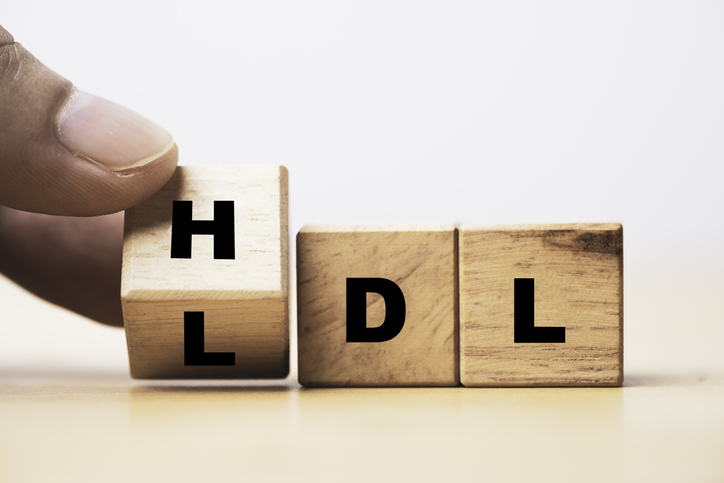
Maintaining healthy cholesterol levels during pregnancy is essential for the mother and her unborn baby. High cholesterol during pregnancy can cause serious medical complications for the mother and the baby, including an increased risk of cardiovascular disease. This article will explore the symptoms and complications of high cholesterol during pregnancy, its effects on maternal health, fetal development, and offspring's risk of atherosclerosis. Additionally, we will discuss the safety and efficacy of lipid-lowering interventions in pregnant women with familial hypercholesterolemia.
Key Takeaways
High cholesterol levels during pregnancy can adversely affect maternal health and fetal development.
Cholesterol levels in pregnancy are not routinely measured or treated.
Maternal hypercholesterolemia has been associated with an increased risk of preterm delivery and reduced blood flow in the umbilical artery.
High maternal cholesterol levels during pregnancy have been linked to later developing atherosclerosis in offspring.

The Signs of High Cholesterol
High cholesterol during pregnancy is often asymptomatic; however, some pregnant women may experience fatigue, nausea, and abdominal pain. Pregnant women should be aware of the potential signs of high cholesterol, including the feeling of being unusually tired, feeling unwell, and experiencing abdominal discomfort. If any of these symptoms are present, it is important to speak with a doctor or midwife to evaluate the possibility of high cholesterol. Other signs of elevated cholesterol levels may include yellowish patches on the skin, known as xanthomas. Additionally, pregnant women may experience complications such as preeclampsia or gestational diabetes, which high cholesterol levels can exacerbate. Pregnant women need to minimize their risk of high cholesterol by eating a healthy diet and exercising regularly.
Many people suffering from high cholesterol will feel no different, especially women who are in childbearing age and experiencing symptoms of discomfort from many different sources.
Pregnant women will naturally have a higher cholesterol level than the average person. Comparatively, the average person will have a cholesterol level between 120 and 190 mg/dl. A healthy pregnant woman will have over 200 mg/dl of cholesterol. Cholesterol during pregnancy will typically rise, increasing gradually in the second trimester and peaking during the third trimester; however, it should be tested by a doctor if it ever goes over 240 mg/dl.
High Cholesterol Symptoms and Pregnancy on Your Baby
Elevated maternal cholesterol levels in pregnancy are associated with adverse effects on the mother and her developing baby. The risks associated with high cholesterol during pregnancy include preterm delivery, reduced blood flow impedance in the umbilical artery, increased risk of delivering heavier babies, and increased risk of atherosclerosis in the offspring. It is important for pregnant women to monitor their cholesterol levels and to discuss any concerns with their healthcare provider. Furthermore, a healthy diet and lifestyle should be maintained during pregnancy to help ensure the health of both mother and baby. Fortunately, despite these risks, most pregnancies with elevated cholesterol levels will still result in a healthy baby. However, it is important to be aware of the possible risks and to discuss them with your healthcare provider.
Part of the reason to be so careful about high cholesterol is that the effects of high cholesterol on the baby have yet to be fully rendered in the study. Doctors know that high cholesterol is not good for the mother or baby. Symptoms that babies with bad cholesterol have been known to showcase include obesity in early life as well as less lung capacity, which can bring about a whole host of problems. Less air to the brain and the muscles can hinder a baby's physical and mental development and cause secondary social concerns.
Pregnancy and High Cholesterol Effects on the Mother - Risk Factors
Maternal hypercholesterolemia during pregnancy is associated with various unfavorable effects on the mother. High cholesterol levels may increase the risk of gestational diabetes, pre-eclampsia, and preeclampsia-associated conditions such as eclampsia and HELLP Syndrome. Hypercholesterolemia may also increase the risk of placental abruption and preterm birth. In addition, maternal hypercholesterolemia increases the risk of adverse cardiovascular events, such as myocardial infarction, during or after pregnancy. Therefore, pregnant women must maintain healthy cholesterol levels to reduce the risk of these complications. To ensure optimal health, pregnant women should consult their healthcare provider to determine the appropriate cholesterol levels for their needs.
The effects of high cholesterol on the mother are much easier to test and are much more well-documented. Most of the negative effects of high cholesterol occur when the blood test levels do not return to normal after the pregnancy.
The number one way that most mothers return their cholesterol levels to normal after pregnancy is to breastfeed the new baby. Suppose the levels of cholesterol remain abnormally high. However, a new mother may need to indulge in some of the solutions below, including dietary changes, exercise programs, and medications.

How to Self-Manage Too Much Cholesterol During Pregnancy
Managing cholesterol levels during pregnancy is important in reducing the risk of adverse maternal and fetal outcomes. Eating a healthy diet and avoiding foods high in saturated fat is essential for pregnant women. Physical activity can also help lower cholesterol levels and maintain a healthy weight. Additionally, pregnant women should have their cholesterol levels monitored at least once during their pregnancy. If levels are high, lifestyle modifications such as dietary changes, exercise, and weight loss may be recommended. Medications such as statins may also be prescribed, although their safety and efficacy in pregnant women is not yet established. Pregnant women need medical advice if they are concerned about their cholesterol levels. Self-management is an important part of maintaining a healthy pregnancy.
There are actions that every mother can take to self-manage high Cholesterol during pregnancy. The first of these good cholesterol management techniques is to modify the diet.
Dietary changes known to work include daily fish oil supplements and increasing whole grains. Mothers-to-be have also experienced success when eating less of foods naturally high in cholesterol, such as eggs and cheese. Overall, healthy diets with plenty of fruits and vegetables will help manage cholesterol levels.
Any dietary changes should be discussed with a doctor before implementation: Although high cholesterol is something to be avoided, cholesterol is still an essential part of the baby's development while the pregnancy is still in term. The cholesterol level should not be too much cholesterol or be allowed to drop too much.
Moderated exercise is another way to self-manage the blood cholesterol level of a pregnant woman; however, all exercise programs should be done with the utmost care under the constant supervision of a licensed doctor and dedicated physical therapist.
Medications to Manage High Cholesterol
High cholesterol can also be managed through medical treatments for mothers who may not have the ability to exercise or change their diets. Atorvastatin, known as Lipitor on the market, is one of the main treatments for high cholesterol in new mothers. Generally well tolerated, there are few side effects that occur with atorvastatin when taken properly under the supervision of a doctor.
Because Lipitor is transferred through breast milk from the mother to the child, the full effect of Lipitor on babies after pregnancy are still being studied. The use of Lipitor during pregnancy should be done only under the strict supervision of a doctor because there are currently no studies that have created a consensus of the effects of the medication on a baby in the womb. In studies with lab rats, implementation of Lipitor resulted in decreased pup survival as well as many other adverse effects for the babies that did survive. These findings do not necessarily correlate with the same effects in humans; however, they do raise important questions about the implementation of Lipitor in a high cholesterol program for a pregnant woman. Most medical professionals currently agree that this type of treatment should be undertaken only as a last resort if the self management techniques of lowering high cholesterol do not work for the soon-to-be mother.

What food can cause high cholesterol?
Eating an unhealthy diet high in saturated fat can lead to an increase in cholesterol levels. Red meat, butter, cheese, and full-fat dairy products are high in saturated fat and should be eaten in moderation. Trans fats in processed and fried foods can also elevate cholesterol levels. Eating foods high in dietary cholesterol, such as eggs, shrimp, and organ meats, can also lead to high cholesterol levels. Additionally, consuming large amounts of sugar and refined carbohydrates can increase cholesterol levels. It is important to make healthier choices regarding food to ensure that cholesterol levels remain within the recommended range. Eating a balanced diet with plenty of fruits, vegetables, and whole grains is the best way to ensure healthy cholesterol levels.
What is the most common cause of high cholesterol?
An unhealthy diet high in saturated fat is the most common cause of elevated cholesterol levels. Eating too much red meat, dairy, and processed foods can lead to a buildup of fats in the bloodstream, resulting in high cholesterol. This can cause several medical complications, including an increased risk of cardiovascular disease, stroke, and heart attack. In pregnant women, high cholesterol can lead to pregnancy complications such as preterm delivery or fetal growth restriction. It is important for pregnant women to be aware of their dietary intake and to make sure to eat a balanced diet that is low in saturated fat. It is also important to get regular checkups to monitor cholesterol levels and take steps to keep them within a healthy range. By taking these proactive steps, we can ensure that pregnant women and their unborn children remain healthy and free from the complications of high cholesterol.
Why is my cholesterol high if I eat healthy?
Although maintaining a healthy diet is important in managing cholesterol levels, other factors can contribute to high cholesterol, even in healthy individuals. Genetics, age, gender, and lifestyle can all contribute to increasing cholesterol, and certain medical conditions can also contribute. For example, hypothyroidism can cause an elevation in cholesterol levels, as can diabetes, kidney and heart disease,, and certain medications. It is important to talk to your doctor if you are concerned about your cholesterol levels, even if you eat a healthy diet and exercise regularly. Your doctor can help you understand your cholesterol levels and determine the best treatment.
What are the main reasons for high cholesterol?
Various factors, including diet, genetics, and lifestyle, can cause high cholesterol levels. Diet is one of the most common causes of high cholesterol, as foods high in saturated and trans fats, cholesterol, and sugar can raise cholesterol levels in the body. Genetics can also play a role, as individuals may have a higher risk of developing high cholesterol if their family members have a history of it. Finally, lifestyle choices such as smoking, physical inactivity, and stress can also contribute to high cholesterol levels. It is important to be aware of these factors and take steps to reduce your risk. Eating a healthy diet, exercising regularly, and avoiding smoking are all good ways to keep your cholesterol levels in check.
Why is my cholesterol high if I'm healthy?
A healthy lifestyle does not guarantee that cholesterol levels stay within healthy ranges, as genetics and diet can also influence unhealthy cholesterol levels. Inherited genetic traits, an unhealthy lifestyle, or an unhealthy diet can cause high cholesterol. A condition or certain medications can also cause it. You may still have high cholesterol levels even if you are healthy and lead a healthy lifestyle. This is because the body naturally produces cholesterol, and the amount produced is often determined by genetics. Additionally, certain foods, such as processed meats, fried foods, and foods high in saturated fat, can contribute to higher cholesterol levels. Maintaining a healthy lifestyle and balanced diet is important to keep cholesterol levels within healthy ranges, as having high cholesterol can lead to serious health conditions.
How can I lower my cholesterol quickly?
Making changes to diet and lifestyle can help to reduce cholesterol quickly. Eating a healthy diet can reduce cholesterol levels by limiting the intake of saturated and trans fats. Additionally, exercise can help reduce cholesterol levels by improving the body's ability to break down fats and build muscle. It is also important to reduce stress levels, as this can affect cholesterol levels. Reducing alcohol consumption and quitting smoking can also help to lower cholesterol levels. As always, speaking with a healthcare professional for individualized advice is important. Taking proactive steps to lower cholesterol can help to lower your cholesterol and reduce the risk of potential health complications.
What are the five signs of high LDL cholesterol?
Evidence suggests certain physical and laboratory signs may indicate elevated cholesterol levels. These include fatigue, nausea, high blood pressure, and abdominal discomfort. Additionally, laboratory testing can reveal elevated total cholesterol levels, low-density lipoprotein (LDL) cholesterol, and triglycerides. It is important to note that high cholesterol and triglyceride levels can be asymptomatic, and symptoms may only manifest during a medical emergency. Therefore, it is important to have regular blood tests to screen for high cholesterol levels. Taking proactive steps to manage cholesterol levels can help reduce the risks of developing serious health complications. Understanding the warning signs of high cholesterol is important for identifying potential risks and managing health.
What are the warning signs of high cholesterol?
It is important to be aware of the signs of elevated cholesterol levels, as these can help recognize potential risks and manage health. High cholesterol levels in pregnancy can adversely affect the health of the mother and the fetus. Common warning signs of high cholesterol levels include fatigue, yellowing of the skin, abdominal discomfort, swollen extremities, and aching joints. Additionally, high cholesterol levels can cause an increased risk of stroke, heart attack, and other cardiovascular complications. It is recommended that pregnant women have their cholesterol levels monitored regularly to ensure that they remain within a healthy range. If levels are elevated, speaking to a doctor or healthcare provider about lifestyle changes, dietary modifications, and/or medications is important to help manage cholesterol levels.
How does your body feel when you have high cholesterol?
Elevated cholesterol levels can cause various physical effects, such as fatigue, yellowing of the skin, abdominal discomfort, swollen extremities, and aching joints. These physical issues can be uncomfortable, leading to further health complications if left unchecked. Other symptoms of high cholesterol include difficulty breathing, chest pain, and headaches. In some cases, high cholesterol can even cause nausea and vomiting. It's important to talk to a doctor if any of these symptoms are present, as they can help diagnose and treat the underlying cause of the various high cholesterol symptoms. With proper treatment, most of these symptoms can be alleviated. With this in mind, let's focus on what reduces cholesterol quickly.
What reduces cholesterol quickly?
Dietary and lifestyle changes can quickly reduce cholesterol levels in the body. Eating a healthy diet, exercising regularly, and reducing stress levels can all help to lower cholesterol levels. Eating fresh fruits and vegetables, lean proteins, and whole grains can help reduce cholesterol levels by decreasing saturated fat intake. Exercising for at least 30 minutes a day, five days a week can also help to reduce cholesterol levels. Reducing stress levels can also help lower cholesterol, as stress can raise cortisol levels, leading to higher cholesterol levels. Finally, quitting smoking can also help to reduce cholesterol levels. Making these small changes to one's lifestyle can have a big impact on cholesterol levels. Following these guidelines makes reducing cholesterol levels quickly and effectively improving overall health possible.
Frequently Asked Questions
What Food Can Cause High Cholesterol?
High cholesterol can be caused by consuming foods high in saturated and trans fats, such as red meat, full-fat dairy products, fried foods, and processed foods. Limiting or avoiding these foods is important to maintain healthy cholesterol levels.
What Is the Most Common Cause of High Cholesterol?
The most common cause of high cholesterol is an unhealthy diet, often high in saturated fats and trans fats. Eating too much of these fats can lead to an increase in cholesterol levels.
Why Is My Cholesterol High if I Eat Healthy?
Your cholesterol levels can be high even if you eat a healthy diet. It could be due to genetic predisposition, gender, age, or other factors. Discussing your specific health profile with your doctor to determine the cause of your high cholesterol is important.
What Are the Main Reasons for High Cholesterol?
Various factors, such as genetics, diet, and lifestyle, can cause high cholesterol levels. Additionally, certain medical conditions, such as diabetes, can increase the risk of high cholesterol. Maintaining a healthy lifestyle, including regular exercise and a balanced diet, is important to reduce the risk of heart disease.
Why Is My Cholesterol High if I'm Healthy?
Healthy individuals can have high cholesterol levels. Genetic predisposition, diet, lifestyle choices, medications, and other medical conditions can cause this. Therefore, discussing any risk factors with your healthcare provider is important.
Rely on PlanetDrugsDirect.com to Buy Online Cholesterol Medications
As a trusted prescription referral service, we offer important benefits whenever you order online. Each of our partner pharmacies and/or government-approved dispensaries is committed to providing the best experience possible of any online prescription referral service on the internet. We offer:
Low prices
Quick turn-around times
Generic and brand-name medications
Unparalleled customer service






